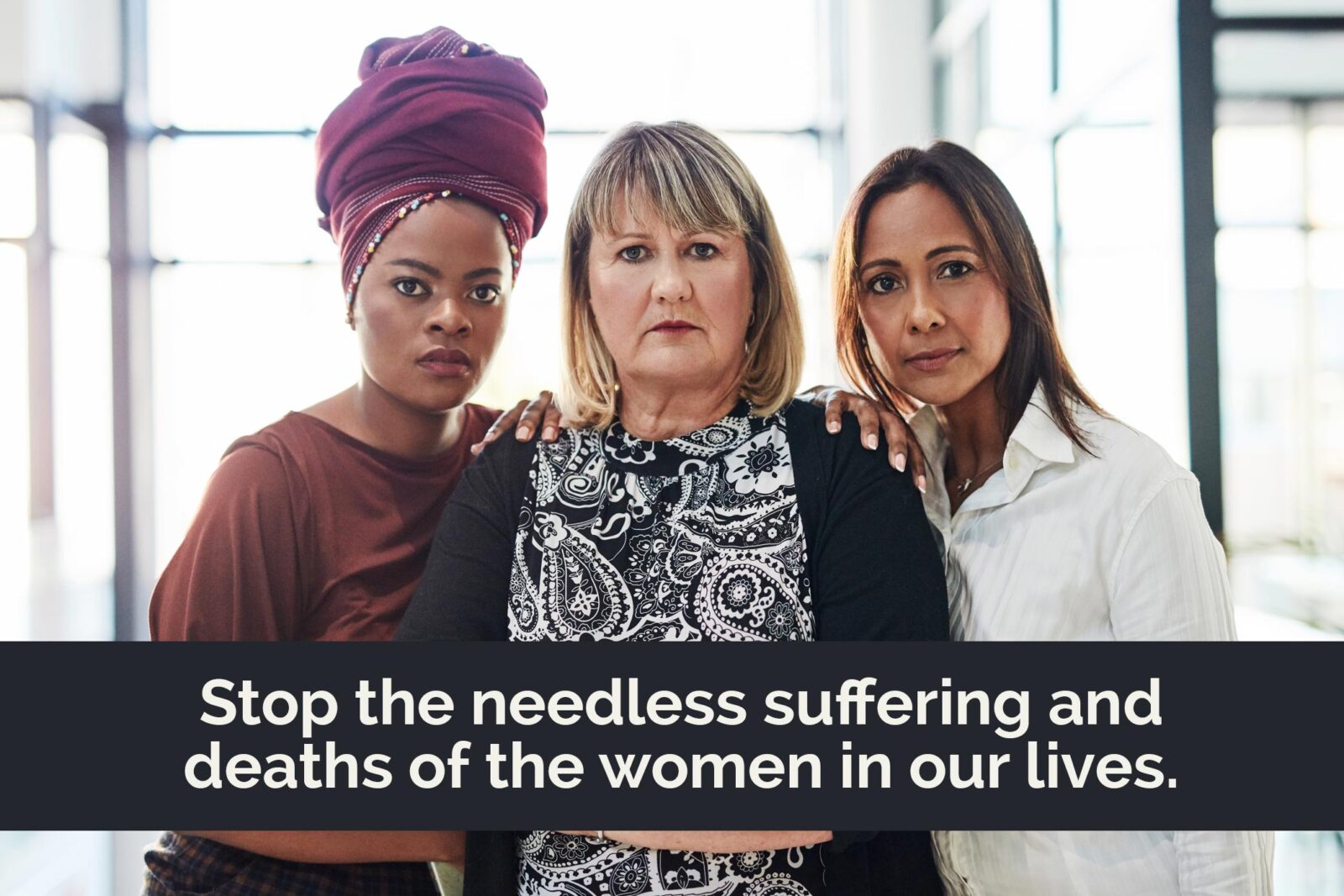
Demand that the Government fulfills its commitment to better breast screening for Canadian women.
This spring, “updated” breast cancer screening guidelines will be released by the Canadian Task Force on Preventive Health Care. These guidelines will be used by ~48, 000 family doctors and are supposed to protect us, but unless action is taken now, they won’t.
The current guidelines were made in 2018 by a panel of volunteers (the Task Force) who were not breast cancer experts. They recommend AGAINST critical screening measures like mammograms in the 40s, self-exams, the use of the latest technology, and additional screening for women with dense breasts.
Despite the government's commitment to update the guidelines based on the latest evidence, it appears the Task Force will fail to do so. We have warned officials that without immediate action, the 2024 guidelines will continue to jeopardize women's lives.
The following concerns must be addressed:
1.Unlike the US Task Force, which focused on evidence published after 2016, the Canadian Task Force is relying on outdated studies from the 1960s, 70s, and 80s, which is problematic:
- Current studies indicate that breast screening reduces breast cancer deaths by 40-50%, contrasting with older studies that show minimal benefits and overstate harms.
- Older studies don’t take into account the increasing incidence of breast cancer in younger women, a key factor prompting the US to lower their screening age to 40.
- Relying on outdated studies perpetuates systemic racial bias, as these studies mainly involved white women. Today, we understand that Black, Asian, Indigenous, and Hispanic women develop breast cancer at younger ages than white women.
2.Task Force members show strong biases against screening. For instance, the co-chair stated to the media, even before the evidence review began, that the guidelines from 2018 don't need changing.
3.Provinces and territories have lost confidence in the Task Force, choosing to update their breast screening guidelines based on current evidence. Nearly all have committed to starting screening at 40, but family doctors continue to adhere to the Task Force guidelines, which advise against screening until 50.
4.The Task Force lacks governance and oversight. Despite its "arms-length, independent" status, it must be accountable for ensuring the well-being and safety of Canadians.
The Nurse Practitioner Association of Canada withdrew its endorsement of the guidelines in late March 2024, while the Canadian Cancer Society did so in 2022.
Numerous other specialties share the same concerns about the Task Force guidelines as they relate to screening for cervical, prostate, colon, and lung cancer.
Without intervention, these guidelines will result in more late-stage cancer diagnoses, aggressive treatments, and preventable deaths among Canadian women. Immediate action is needed to safeguard women's health and prevent further loss of life.
Add your voice now and demand Health Minister Mark Holland:
- Fulfill the commitment to use the latest scientific evidence in developing the guidelines.
- Address the Task Force panel's interference in the evidence review.
- Address the bias and anti-screening stance of the Task Force leadership.
- Ensure attention is given to both the increasing incidence of breast cancer in young women and to women at higher risk (e.g. with dense breasts).
- Use inclusive science to acknowledge differences in the peak age of diagnosis in minority and Indigenous women.

